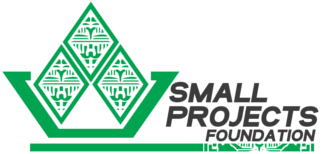Small Projects Foundation (SPF) has been promoting the Integrated School Health Policy (ISHP) in schools across South Africa through the Bright Futures and Ensuring Futures programmes.
Principles of the School Health Policy
- The Integrated School Health Policy is part of the comprehensive primary health package which operates within the DBE’s CSTL Framework and should:
- Focus on achievement of health and educational outcomes
- Be implemented within a child’s right approach. Children must be empowered actors in their own development.
- Ensure full coverage of all learners starting in the most disadvantaged schools.
- Ensure that appropriate assessment, treatment, care and support services are available and accessible to all learners who are identified as requiring them.
- Be implemented as a partnership between Departments of Health, Basic Education, Social Development and all other relevant stakeholders and role-players.
Packages of Services
· Screening
· On-site services
· Health Education and Promotion
Coordination and Partnerships
- Partnerships: The success of school health programmes depends on strong partnerships between Education, Health and Social Development Sectors, teachers and NGOs implementing ISHP services.
- School Participation: School Governing Bodies, Principals and LO Teachers fully understand and support the ISHP. Allocation of Mentor Teachers (LO’s) to support the programme. Allocation of time for NGO to interact with learners. Provision of monthly statistics (absenteeism, reported pregnancies, drop-outs, learners who have accessed ISHP services, learners who have been referred and linked to care)
- School health services: School Health Teams provide services and referral
- Social workers provide regular services, support and referral
- Community participation: This is important as parents, families and communities need to know their rights and responsibilities and take positive action towards improving well-being of learners.
- Learner Participation: Learners participate in ISHP, attending lessons and the Girls and Boys Education Movement Clubs.
- Parental Knowledge, Consent and Active Engagement: Written consent from parents / carers of learners; active engagement of parents with education, health and social development services.
| Institutionalisation of ISHP through capacity building, mentoring and support | ||
| HEALTH | SCHOOL | COMMUNITY |
· Nurses · Health Promoters · Community Health Workers · Ward Based Outreach Teams · Clinic Committee Members | · Life Orientation Teachers · School Governing Bodies · School Management Teams · Health Teams · Learners | · Parents · CBOs · Community leaders · Community stakeholders · Community service providers (and Social Workers) |















